Welcome back to This Week in Apps, the Extra Crunch series that recaps the latest OS news, the applications they support, and the money that flows through it all.
The app industry in 2018 saw 194 billion downloads and more than $100 billion in purchases. This past quarter, consumer spending exceeded $23 billion and installs topped 31 billion. And there’s no sign of the app economy slowing down.
But with app marketplaces growing this large and powerful, they’re also now coming under more scrutiny from government officials as this intersection between apps and politics can no longer be overlooked.
This week, U.S. Senators asked for a TikTok security check, Google hosted its Android Developer Summit, a whole bunch of malicious apps got booted off Google Play (and a few on the App Store, too.) Plus, a great alternative to Apple Arcade launched; it’s called GameClub and delivers some of the best App Store games for $5 per month.
Headlines
TikTok comes under more political pressure
The world’s most downloaded app, TikTok, continues to draw attention not for its fun skits and lip-synced songs, but for censorship issues and potential security risks. This week, Senate Democratic Leader Chuck Schumer (D-NY) and Senator Tom Cotton (R-AR) sent a letter (PDF) to Acting Director of National Intelligence Joseph Maguire, formally requesting that the Intelligence Community conduct an assessment of the national security risks posed by TikTok and other China-owned content platforms in the U.S.
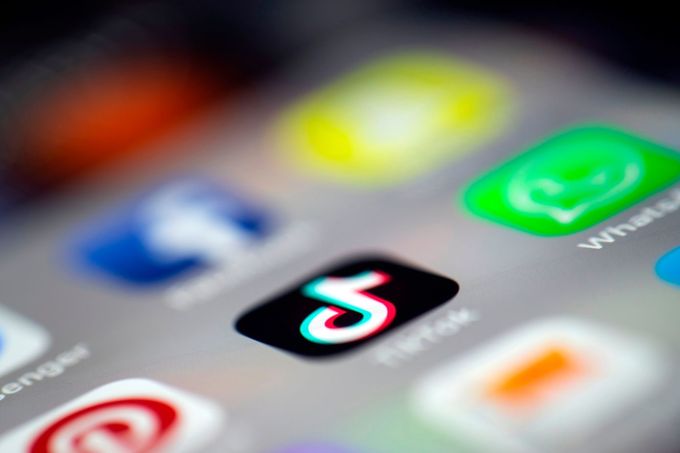
Their concerns revolved around the storage of U.S. TikTok user data (TikTok parent company ByteDance claims it’s in the U.S.), its data collection capabilities, censorship concerns, and the potential for the app to be a counterintelligence threat. As a Chinese-owned company, TikTok still has to adhere to Chinese law. That’s a potential problem.
By the way, a press release circulated about the letter, which said the senators claimed TikTok was a “national security threat.” They actually did not write those words in the letter — and it’s a step beyond what they were claiming. The senators wanted a risk assessment performed.
The Office of the Director of National Intelligence declined to comment. TikTok said it was “carefully reviewing” the letter. Good thing they just hired those lawyers.
Apple CEO Tim Cook is now the top advisor to a business school called China’s Harvard
The issues around the App Store’s intersection with U.S. politics aren’t limited to TikTok.

Apple, already under scrutiny for removing a crowdsourced mapping app that showed police presence in Hong Kong, last week attracted a letter from a bipartisan group of U.S. lawmakers who urged to have the app reinstated.
Now (with a lack of concern over the optics apparently), Apple CEO Tim Cook has been appointed as chairman of Tsinghua University’s business school advisory board. The university is known as “China’s Harvard,” and is one of the most country’s most elite institutions; Chinese President Xi Jinping is a noted alumnus. The university has a history of relationships with Western leaders — last year, Mark Zuckerberg, Elon Musk, and Satya Nadella were listed as board members, and its previous chairman was American VC Jim Breyer.
But given the issues around Apple’s capitulation to China’s demands to censor its App Store in the region — not to mention the U.S.-China trade war, or how Apple had told Apple TV+ showrunners not to anger China — everyone pretty much agrees it was not the best timing for this news.
Unfortunately for Apple, it can’t abandon China now, as it’s grown too dependent on its business there. As Vox recently reported:
Unlike tech companies that haven’t broken into the country or only do minor business in it, Apple is now so deep in China that leaving it could be catastrophic. Even if the company was willing to forgo the $44 billion a year in sales it makes in China, it can’t leave the deep network of suppliers and assemblers that build hundreds of millions of iPhones every year.
Millions of malicious apps get booted from Google Play…and malicious apps spotted on the App Store, too
Malicious apps were found on both Google Play and the App Store this week. But these stories are not at all the same.
Security researchers found dozens of Android apps in the Google Play store serving ads to unsuspecting victims as part of a money-making scheme. The 42 apps containing adware had been downloaded more than 8 million times since they first launched in July 2018. The apps were also sending back data about the user’s device, TechCrunch reported — including if certain apps are installed and if the device allows apps from non-app store sources — which could be used to install more malicious software.
Sadly, this kind of thing happens a lot on Google Play.
What’s less common, however, is to find malware on the App Store — which happened this week, when 17 malicious apps were removed.
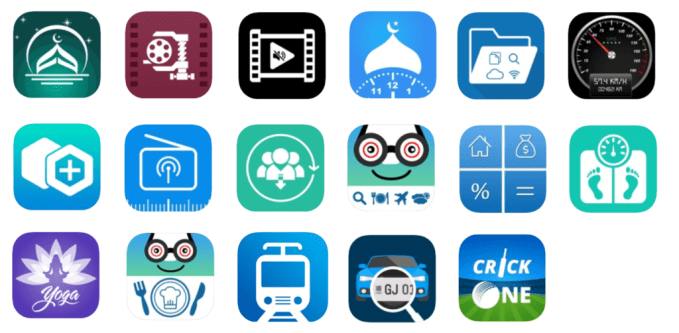
Apple confirmed the app contained ad-clicking code that violated App Store guidelines. And Apple also said it introduced new measures to spot any similar submissions in the future. But the security researchers’ claims about the apps’ potential danger were overblown, AppleInsider reported:
There is no way for the app developers to add additional attack surfaces to the app on the fly. There is also no way to make the functionality contagious, using the command and control server that the company says that it has found. Further, Apple’s iOS sandboxing prevents any user data theft without the user actively providing that data to the app.
Google launches “well-being” app experiments platform and is accepting submissions
Developers who have ideas about how apps can be put to use to help users better manage their screen time — or even go without — now have a new platform for those submissions. This week Google launched a new Digital Wellbeing Experiments platform, featuring innovative, “think-outside-the-box” ideas for helping people become better aware of their device use and reduce their screen time.
The platform is open to submissions.
It may seem counterintuitive for app developers to create tools that help people use fewer apps or encourage people to use apps less often. But phone and app addiction can be real problems. When screen time goes unchecked, people may begin to view their apps as toxic, addictive and unfulfilling — the equivalent of eating junk food or spending too much time watching TV. (In fact, we already spend more time on our phones than we do watching TV.)
In reality, apps can be useful tools when you can get away from the psychological tricks employed by Facebook, Instagram, Tinder, and others, or the gambling-like activities plaguing free-to-play games.
Google’s first set of apps were either whimsical or practical, and sometimes both. One rounds up all your notifications to deliver at a time you set, another lets you disconnect as a group activity. There’s even one that lets you print out — yes, on paper — everything you need today from your phone so you can use it less often.
Zynga’s stake in Small Giant Games pays off
U.S. publisher Zygna bought a majority stake in Small Giant Games in December 2018 and now its title Empires & Puzzles has become one of the company’s largest games. According to new data from Sensor Tower, this Match-3 RPG has now surpassed $500 million in lifetime gross revenue. Specifically, the game hit approximately $507 million from more than 41 million downloads. And the average revenue per download for the game currently averages at just over $12.
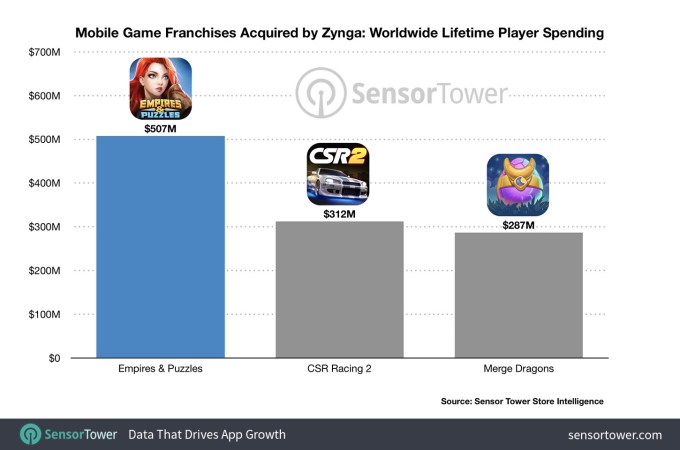
This puts the game ahead of other big Zynga franchises, like CSR Racing 2 or Merge Dragons.
It’s also an interesting case of Google Play delivering the majority of the revenue. The Android version generated 67% of the gross revenue, or $340 million.
Google Android Developer Summit round-up
Google hosted its Android Developer Summit this week, where it made a bunch of announcements about its vision for the future of Android and the modern Android development experience.
This included:
- Jetpack Compose was released to developer preview: First announced at Google I/O last year, Jetpack Compose lets developers to build native apps through declarative UIs that will make code more concise and intuitive. This developer preview will give developers the chance try the tools out while also being able to give the Android team feedback.
- Expanded APIs for Android Jetpack: Benchmarking (which lets developers measure app performance) and Viewbinding (making it easier to access code Views with minimal annotations or build-time impact), went live this week. Google also previewed the CameraX API, which will be going into beta in December.
- Android Studio 4.0 in Canary: Preview Compose tooling (live preview, code completion, etc.) as well as Java 8 library desugaring, motion editor, full support for KTS files, and Kotlin live templates.
- Android App Bundles now offers testing: There are now over 270K Android App Bundles in production covering 25% of all active installs, just 18 months after App Bundles launches. Google is now making app bundles and dynamic delivery easier to test with Internal App Sharing. This lets you share test builds of your app bundle as easily as you share APKs, the company claims. You can grant anyone on your team the ability to upload artifacts without giving them Play Console access. You also don’t need to sign test versions with your production app signing key, you don’t need to use version codes, and you can upload debuggable artifacts.
If you couldn’t attend the event, Google puts all the keynotes, sessions, and panels on YouTube.
Fleksy gets unfairly rated, calls out Google’s platform power
Indie keyboard app Fleksy, a rival to Google’s own Gboard app, was hit with a PEGI 12 rating on Google’s Play Store in Europe. This label signifies the app may contain slightly more graphic fantasy violence or mild bad language, compared with the lower PEGI 3 rating for “all age groups.”
Meanwhile, in the U.S., Fleksy was rated “teen” while Gboard is “E” for Everyone.
What’s weird is that the rating is based on the app’s inclusion of the middle finger emoji — the emoji that was approved as part of Unicode 7.0 in 2014 under the name “Reversed Hand With Middle Finger Extended” and added to Emoji 1.0 in 2015. This emoji is also available in Gboard and in emoji keyboards everywhere.
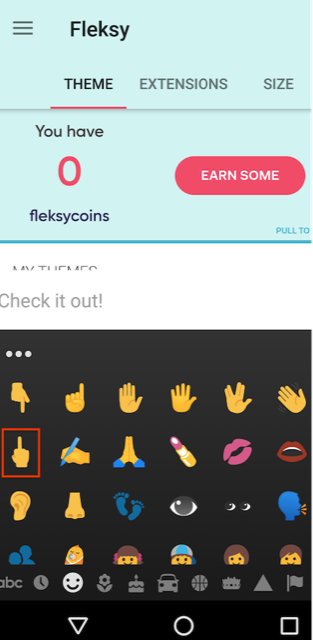
Fleksy founder says Google is abusing its platform power to give its own app an advantage,
“We’re all-in for competition, it’s healthy… but incumbent players like Google playing it unfair, making their keyboard 3+ with identical emojis, is another showcase of abuse of power,” he told TechCrunch.
The app company had to contact the International Age Rating Coalition for its rating review. After media coverage, Google’s Play team restored its PEGI 3/E rating.
More Reading
Analysis: Apple’s control over the App Store is no longer sustainable
Extra Crunch subscribers can take a deep dive into the risks associated with Apple running a marketplace that may have become too big. We can expect wide-ranging marketplace regulation in the near future, says TechCrunch’s Romain Dillet.
While Apple CEO Tim Cook defended Apple’s stance [in removing HKmap.live in Hong Kong], the move is a reminder that Apple is the only judge and jury regarding what’s acceptable in the App Store — but as mobile devices are integrated into more aspects of our lives, it’s getting harder to justify such tight control over their software.
Good News: Tests show that Dark Mode on iPhone extends battery life by 30%
Need a good reason to develop a dark mode option for your app? Consumers aren’t just picking dark modes because they look cool — they’re also tapping into real battery savings. A new test pitted two iPhone XS models head-to-head and the one with Dark Mode enabled vastly outperformed the one without. When the non-Dark Mode device died, the other phone still had roughly 30% battery life.
The test, which used robot arms to touch the iPhone’s screen, used apps like iMessage, Twitter, YouTube, and Google Maps. It’s not a scientific test, but definitely one that demonstrates what switching on Dark Mode can do for you.
(Skip to 1:25 to get straight to the test.)
Downloads
App of the Week: Fender Songs
Fender released its latest app, Fender Songs, which joins Fender Play, Tune and Tone — the company’s full set of music tools. The new app, which integrates with Apple Music, is aimed at guitar players who want to learn the chords to songs they know, reports Engadget.
It includes a library of chords available as a $4.99 per month subscription, or $41.99 for a year. While chords have been offered online for years, the app includes nice touches that make it worth the price — like a recording feature so you can hear yourself, a metronome option, and a drum track and bass line for backing (which you can turn on or off).
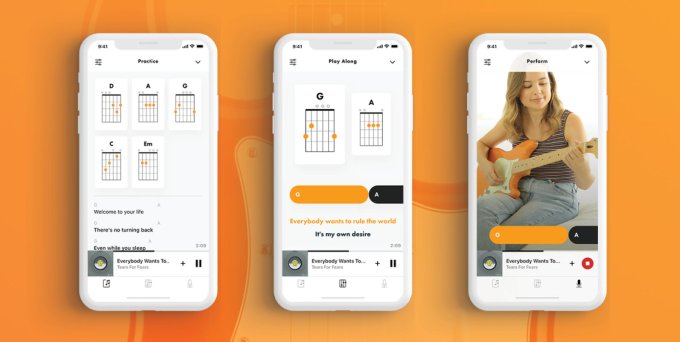
Fender uses software to automatically transcribe chords — which means you’ll be able to play songs that don’t even feature guitar in them.
The app is currently iOS only, but will soon expand to Android.
Game of the Week: GameClub
OK. GameClub’s app technically isn’t a game. It’s actually the central hub for a new Apple Arcade-like subscription gaming service that offers up the best of the App Store for $5 per month. The “club” includes apps with proven track records, high ratings and even those that made Apple’s “Game of the Year” lists in the past. And it’s focused on the fun games the free-to-play model left behind — like adventure, action, tower defense, and arcade, for example. These are games you can play and complete, not get sucked into indefinitely. Nor do they force you to spend money.
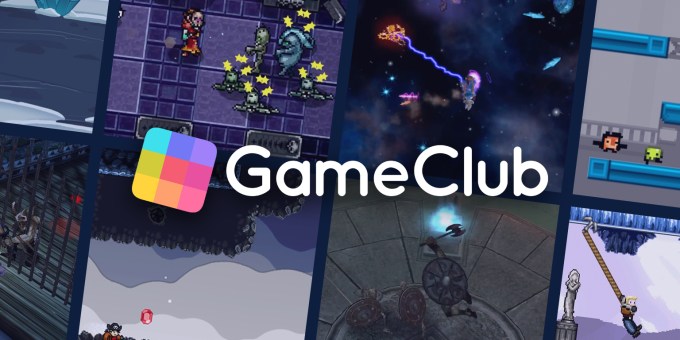
Like Apple Arcade, the games are ad-free and have no in-app purchases. Apple, apparently, is cool with the idea — probably because it allows games that couldn’t be well-monetized before to get bundled into a potentially profitable subscription service.
This one’s a no-brainer for any game lover!
For now, GameClub is iOS-only. But the plan is to make the service a cross-platform offering, initially by expanding to Google Play before tackling PC games and consoles. ( You can read more about GameClub’s plans on TechCrunch.)